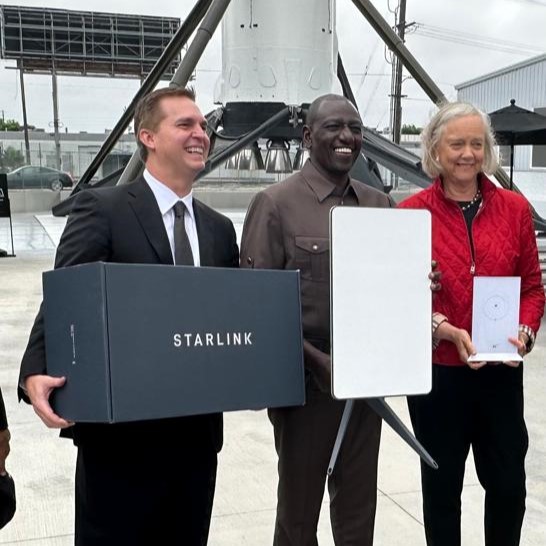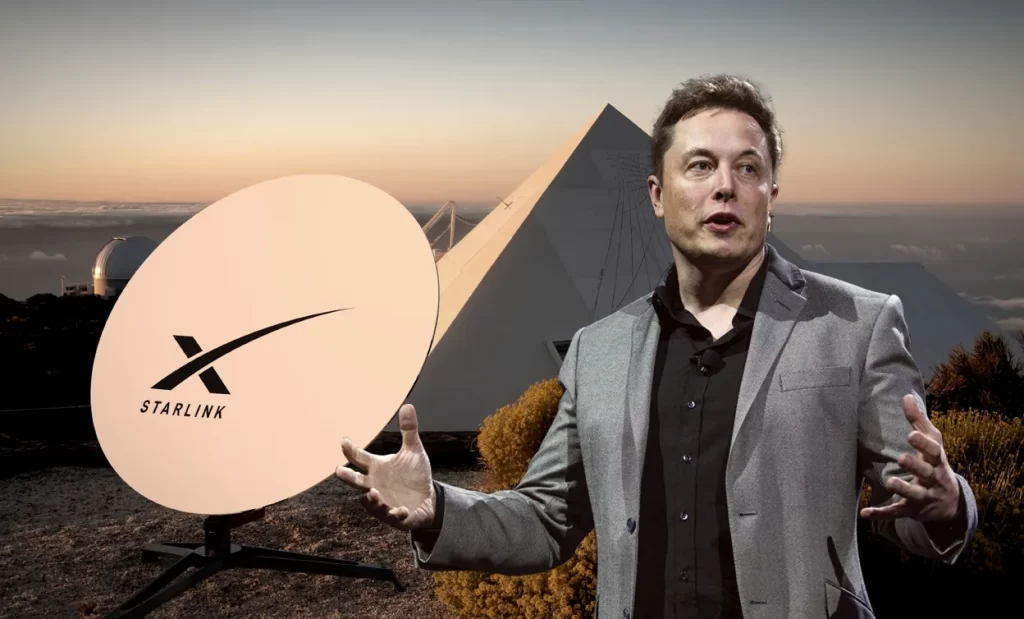Tanzania suffers from inadequate internet connectivity across various regions of the country. With the launch of Starlink operations in Africa, many Tanzanians are anticipating its potential impact on the nation’s internet landscape, especially in remote and underserved areas.
Following Rwanda’s successful adoption of the service, similar expectations arose for Tanzania; however, the reality has been different. While Kenya is now enjoying high-speed internet, Tanzania remains stagnant without the anticipated progress.
Does this new internet service hold the key to addressing Tanzania’s internet challenges? If so, how? What factors are causing the delay in its implementation? This article will explore these questions and highlight the state of internet in Tanzania, as well as the importance of Starlink.
Internet Connectivity in Tanzania
The current state of internet connectivity in Tanzania is very uneven. In urban areas, internet access is relatively widespread, with many people using mobile data or fixed-line broadband.
However, in rural areas, internet access is much more limited. This is due to a number of factors, including the high cost of infrastructure, the lack of skilled technicians, and the remoteness of many rural communities.
The lack of internet access in rural areas has a number of negative consequences. It limits access to education and healthcare, it hinders economic development, and it makes it difficult for people to stay connected with friends and family. In addition, the lack of internet access can make it difficult for people to participate in democracy and civic life.
Starlink’s Arrival in Neighboring Countries
On July, 2023, Starlink officially launched the Starlink satellite internet system in Kenya. Neighbors are beginning to benefit from the world’s fastest internet service, receiving signals from the world’s most powerful satellites. However, Tanzania seems to be lagging behind, as some people are eager to know if the government has any plans regarding this matter.

The question that arises is: What is the current status of this significant long-distance internet project? Do Tanzanians require this type of internet, and how crucial is it for them?
Before delving further, let’s first explore what Starlink is and examine its costs and benefits. Starlink is a network of internet satellites designed by the renowned scientist Elon Musk and his SpaceX team.
These satellites collaborate to transmit internet signals across the globe, creating an extensive network. SpaceX aims to deploy over 42,000 satellites in space for this purpose.
As of now, 3,500 satellites are operational, with an estimated 7,300 more set to be launched into orbit since 2018. This ambitious project targets areas that lack access to conventional internet services, including regions with limited or no internet connectivity. Notably, Starlink’s focus extends to regions like the UK, Asia, Africa, and beyond.
By 2025, SpaceX aims to connect more than 100 million customers worldwide through this network. Initially introduced in 2015, the Starlink project gained permission to launch hundreds of satellites into Earth’s orbit by 2018. Despite initial concerns from various nations, Elon Musk has assured the world that Starlink is safe and intended solely for communication purposes.
Recent developments have seen the introduction of Starlink’s service in Kenya, making it the fourth African country to experience this service, alongside Nigeria, Rwanda, and Mozambique.
Starlink’s Regulatory Hurdles in Tanzania
The Tanzanian government has not yet approved Starlink’s operating license. Starlink needs to obtain spectrum rights from the Tanzanian government in order to operate its satellite network also needs to comply with Tanzania’s regulations on telecommunications and data protection. The regulatory hurdles that Starlink has encountered are a major challenge for the company.
However, the company is confident that it will be able to overcome these challenges and launch its service in Tanzania in the near future.
Several months ago, Elon Musk revealed that the service’s introduction to Tanzania had encountered delays due to challenges related to obtaining necessary permissions.
According to the Minister of Information, Communications, and Information Technology, Nape Nnauye, Elon Musk had no intention of establishing a Starlink office in Tanzania as part of his satellite-based internet service investment strategy. So this means that establishing a Starlink office in Tanzania is the main.
Nevertheless, it is argued that the Starlink service doesn’t necessarily need to establish an office in Tanzania, given that even neighboring countries lack a physical office for this company’s services. The question arises: Is an office necessary for Starlink’s operations? While many companies opt for official distributors within respective countries, Starlink’s approach seems to differ.
For instance, in Kenya, official local companies have already started identifying themselves as authorized distributors for the service. These distributors serve as the primary source of customer service. Additionally, Starlink offers an online customer service system.
Starlink’s Unique Features and Advantages
Notably, Starlink’s internet service holds significant advantages for businesses in various sectors such as agriculture, tourism, and mining. These sectors often operate in remote areas with limited access to reliable mobile network-based internet services.
Presently, Starlink’s satellite internet service offers an average download speed ranging from 25 to 100 Mbps, with upload speeds of 5 to 10 Mbps. The average download speed stands at 97.23 Mbps, allowing users to download an HD-quality movie in just a minute.
Upon signing up for Starlink services, users receive a package containing essential equipment, including a satellite dish, a set-top box, and a Wi-Fi router. Additionally, a specialized 75-foot cable is provided to connect the dish to the Wi-Fi router.
The setup process for the Starlink system closely resembles that of TV receivers or dishes.
The dish is installed externally on the house or building, with signals transmitted via cables to the Wi-Fi router, positioned indoors. This router then distributes wireless internet to users within the designated area.
Some unique features and advantages of starlink over traditional terrestrial internet services includes:
Speed: Starlink offers high-speed internet access, with download speeds of up to 100Mbps and upload speeds of up to 20Mbps. This is much faster than the average internet speeds in Tanzania, which are around 10Mbps download and 1Mbps uploading speed.
Coverage: Starlink has a global coverage area, which means that it can provide internet access to people in remote areas that are not served by traditional terrestrial internet services. This is a major advantage for Tanzania, which has a large rural population with limited access to internet services.
Latency: Starlink has low latency, which means that there is a short delay between when a user sends a signal and when the signal is received. This is important for applications that require real-time communication, such as online gaming and video conferencing.
Portability: Starlink is a portable service, which means that users can take their Starlink dish with them and connect to the internet anywhere in the coverage area. This is a major advantage for people who travel frequently or who live in remote areas.
People may ask how much it cost. In Kenya, an unlimited monthly package for homes is currently available for approximately Tsh 120,000 per month, while equipment costs about Tsh 1,550,000. Satellite-based internet service’s expansive coverage is particularly valuable as it reaches more locations compared to ground-based communications equipment on towers.
Impact on Various Sectors
As a discussed before, Starlink has the potential to have a major impact on various sectors in Tanzania, such as agriculture, tourism, and mining. In these sectors, reliable internet is crucial for a number of activities, including:
- Agriculture: Farmers can use Starlink to access weather forecasts, market prices, and agricultural information. This can help them to improve their crop yields and profitability.
- Tourism: Tourist operators can use Starlink to provide their guests with internet access, which can help them to book tours and activities, make payments, and stay connected with friends and family.
- Mining: Mining companies can use Starlink to monitor their operations remotely, which can improve safety and efficiency.
In addition to these sectors, Starlink also has the potential to impact a number of other sectors in Tanzania, such as education, healthcare, and government services. The availability of reliable internet access can help to improve the quality of education and healthcare services, and it can also help to improve government efficiency.
Starlink’s Approach to Establishing a Network
Starlink has taken a different approach to establishing an office or distributor network in different countries. In some countries, Starlink has established a local office to provide customer support and technical assistance. In other countries, Starlink has partnered with local distributors to sell and install its equipment.
The approach that Starlink takes in a particular country depends on a number of factors, including the size of the country, the level of internet penetration, and the regulatory environment.
In Tanzania, Starlink is likely to partner with local distributors to sell and install its equipment. This is because Tanzania is a large country with a low level of internet penetration, and the regulatory environment is still evolving.
Government’s Stance on Satellite-Based Internet Services
The Tanzanian government has been slow to embrace satellite-based internet services. This is due to a number of factors, including the high cost of satellite internet services, the lack of awareness of the benefits of satellite internet services, and the government’s focus on terrestrial internet infrastructure.
However, the government’s stance on satellite-based internet services is starting to change. If the government continues to embrace satellite-based internet services, it could help to improve internet access in rural areas and boost economic growth.
However, if the government remains slow to embrace satellite-based internet services, it could miss out on the opportunity to improve the lives of Tanzanians. While the pace of progress might be behind, it’s evident that technology cannot be ignored. The hope remains that Starlink will soon be embraced officially in Tanzania.
You can find more technology insights here.


I have read the article through the following link below and gained some insights on why Tanzania has remained stagnant on welcoming Starlink to operate.
https://www.ictworks.org/starlink-extractive-ict-company/.
I think proper arrangements needs to be made before reaching into conclusion of allowing them to invest in the country.